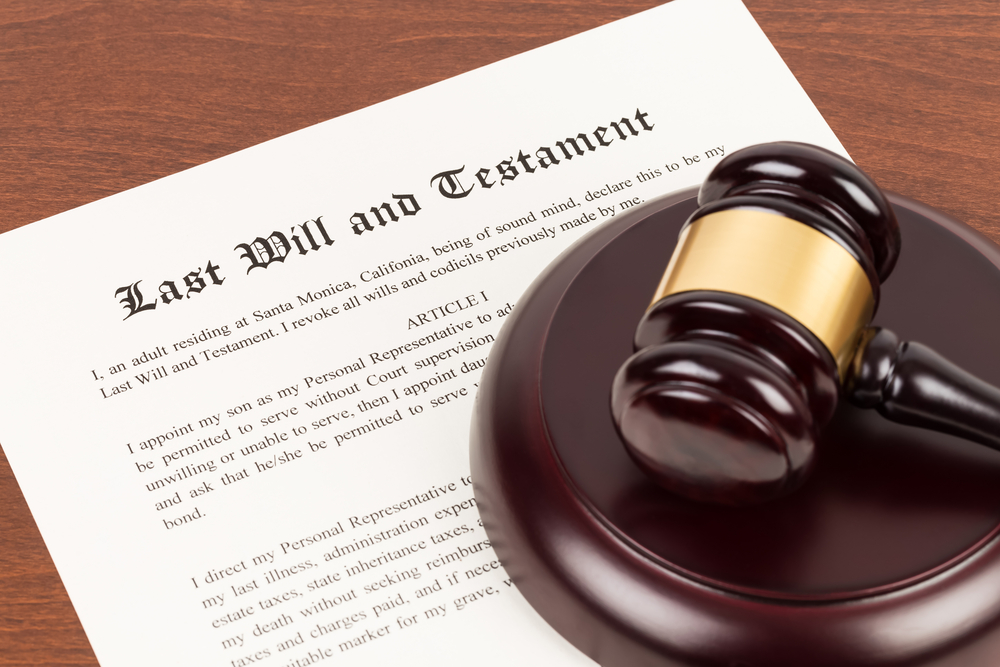
In Florida probate law, the doctrine of dependent relative revocation (DRR) plays a crucial role in determining whether a revoked will can be revived when a subsequent will is declared invalid. This principle seeks to honor a testator’s presumed intent to avoid intestacy. The 2016 case of In re Estate of Virginia E. Murphy (184 So.3d 1221) is a leading example of how this doctrine is applied in situations where undue influence invalidates a later will. If your considering initiating an action to invalidate a Last Will and Testament, this doctrine is very important if there is a prior Will as the Court may revert the Estate back to the older Estate planning documents, even if revoked in the new instrument.
CASE STUDY – IN RE MURPHY (FLA 2ND DCA 2016)
Virginia E. Murphy, who passed away at the age of 107, left behind an estate worth nearly $12 million, a series of wills, and several disputes among potential heirs. The crux of the case centered on the validity of Mrs. Murphy’s 1994 will, which left the majority of her estate to her longtime attorney, Jack S. Carey, and his legal assistant, Gloria DuBois. Mrs. Murphy’s cousin, Jacqueline Rocke, who was a beneficiary under earlier wills, challenged the 1994 will, alleging undue influence by Carey and DuBois.
After a lengthy trial, the probate court found that Carey and DuBois had indeed exerted undue influence over Mrs. Murphy, invalidating the residuary provisions of the 1994 will. However, the court upheld the revocation clause in the 1994 will, which voided all of Mrs. Murphy’s prior wills. As a result, the court concluded that the residuary estate—after specific bequests were made—should pass through intestacy.
This decision was appealed, and the appellate court was tasked with determining whether the doctrine of dependent relative revocation should be applied, which would reinstate one of Mrs. Murphy’s earlier wills rather than allow the estate to pass through intestacy.
The Doctrine of Dependent Relative Revocation
 The doctrine of dependent relative revocation is a common-law principle that essentially posits that if a testator revokes a prior will under the mistaken belief that a new will is valid, and the new will is subsequently found to be invalid, the revocation of the prior will may be disregarded. The doctrine operates on the assumption that the testator would have preferred the earlier will to intestacy.
The doctrine of dependent relative revocation is a common-law principle that essentially posits that if a testator revokes a prior will under the mistaken belief that a new will is valid, and the new will is subsequently found to be invalid, the revocation of the prior will may be disregarded. The doctrine operates on the assumption that the testator would have preferred the earlier will to intestacy.
As explained by the Florida Supreme Court in Stewart v. Johnson, 142 Fla. 425, 194 So. 869 (1940):
“This doctrine… means that where a testator makes a new will revoking a former valid one, and it later appears that the new one is invalid, the old will may be re-established on the ground that the revocation was dependent upon the validity of the new one, [and the] testator preferring the old will to intestacy.”
Thus, the doctrine of dependent relative revocation creates a rebuttable presumption that the testator would prefer to have a previous will enforced rather than having their estate pass through intestacy. This presumption can be overcome by evidence that the testator intended the revocation of the earlier will to be unconditional, regardless of the validity of the new will.
The Application of Dependent Relative Revocation in In re Estate of Murphy
In Murphy, the Second District Court of Appeal explored whether the doctrine of dependent relative revocation should apply to reinstate one of Mrs. Murphy’s prior wills. The appellate court highlighted three key issues:
- Sufficient Similarity Between the Wills: For the doctrine of dependent relative revocation to apply, the court must first determine whether there are sufficient similarities between the invalidated will and the earlier wills. In this case, the court found that Mrs. Murphy’s six wills, executed over five years, shared many similarities. All of her wills employed a similar testamentary scheme, with specific bequests to charities and caregivers, and limited the residuary estate to a few individuals, including Ms. Rocke in earlier versions. This established sufficient similarity between the 1994 will and the prior wills to invoke the presumption of DRR.
- Testator’s Intent: The court emphasized that, in cases of undue influence, extrinsic evidence could be considered to discern the testator’s true intentions. Given that Mrs. Murphy executed multiple wills over the years, with the consistent aim of distributing her assets through testacy rather than intestacy, the court concluded that Mrs. Murphy clearly preferred to leave her estate to named beneficiaries rather than unknown intestate heirs. The extrinsic evidence also showed that Mrs. Murphy maintained a close relationship with Ms. Rocke, further supporting the argument that she would not have wanted her estate to pass through intestacy.
- Burden of Proof and Rebuttal: Once the presumption of DRR is established, the burden shifts to the opposing party to rebut the presumption by showing that the testator had an independent and unaffected intention to revoke all prior wills. In Murphy, there was no evidence that Mrs. Murphy intended to revoke her prior wills unconditionally. In fact, the 1994 will was found to have been tainted by undue influence, and no credible evidence suggested that Mrs. Murphy wanted her estate to pass through intestacy. As a result, the presumption was not rebutted.
The Outcome: Reinstating the 1992 Will
Ultimately, the court concluded that the doctrine of dependent relative revocation should apply, and the revocation clause in the 1994 will should be disregarded. This meant that one of Mrs. Murphy’s prior wills would be admitted to probate. After reviewing the facts, the court determined that the February 1992 will, which included an untainted residuary clause in favor of Ms. Rocke, was the most appropriate version to probate. The residuary of Mrs. Murphy’s estate would, therefore, go to Ms. Rocke rather than to intestate heirs.
Conclusion
The In re Estate of Virginia E. Murphy case highlights the importance of the doctrine of dependent relative revocation in Florida probate law. This case serves as a reminder that even when a will is invalidated due to undue influence, the court will strive to honor the testator’s presumed intent and avoid intestacy whenever possible. The doctrine of dependent relative revocation allows courts to revive earlier wills when the testator’s revocation of those wills was dependent on the validity of a later will.
For anyone involved in probate disputes, this case underscores the importance of understanding how doctrines like dependent relative revocation can impact the distribution of an estate. If you are facing a similar situation involving contested wills or potential undue influence, consulting with an experienced probate attorney can help ensure that the testator’s true intentions are honored.
If you have questions about probate litigation, will contests, or the doctrine of dependent relative revocation, our team of Florida probate attorneys is here to provide guidance and support. Contact us today for a free consultation.
Brice Zoecklein, Esq.
813-501-5071
















